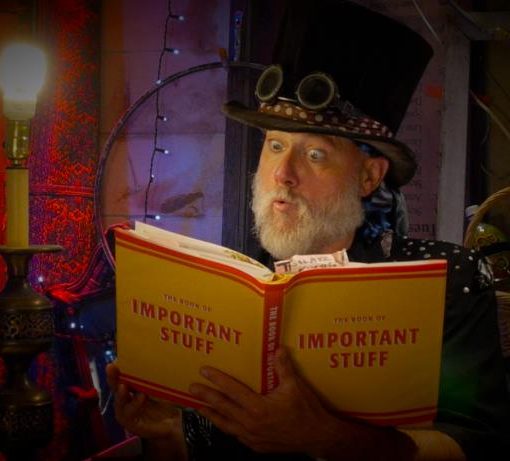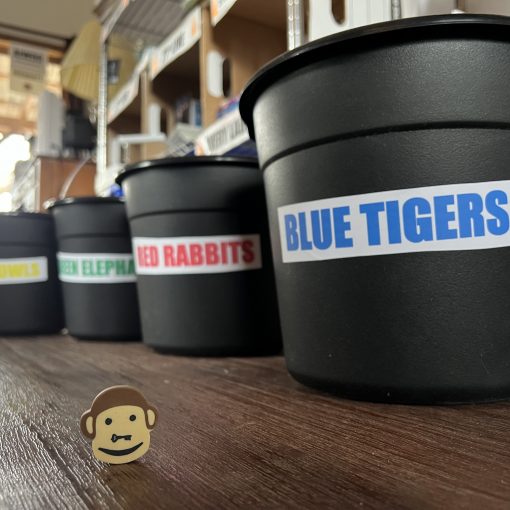
Magic tricks are not real.
That probably seems obvious to you. Right? But magic tricks are way more complicated than you might think. I know this because I’m a magician. I’m a professional magician. I’m the one (literally) pulling the strings, hiding the rabbits, and sawing the ladies in half.
It’s been my job for over 39 years, so I actually think about magic tricks all the time.
Because I’m an illusionist (fancy word for magician), I think about human perception daily – because, of course, that lady isn’t really being sawn in half; that rabbit didn’t really just pop out of nothingness; and that person floating in the air … well … isn’t.
It’s misperception fostered by the magician.
It’s a fun, harmless “game” magicians are playing with the minds of those watching.
It’s a game that works because magicians know where the perceptive holes, shortcuts, bypasses and zones of trickery are inside people’s minds. With this knowledge, we pretend to defy the laws of nature and so we make magic happen.
Now, there are a lot of perceptive holes in our minds, but one of the most important is our ability to “see what we expect to see.” Magicians use this one a lot because it’s so powerful.
Interestingly, it can also apply in our non-magic lives too. Here’s a real life example .
Have you ever purchased a new car, or something expensive like a car? That thing was beautiful, amazing, fantastic – and you just loved it.
It filled you with happiness.
It was red. It was awesome. Your “dream of dreams” had come true. You had a beautiful red car and you were very happy.
But as you drove around town, you began to notice something peculiar: suddenly, there were tons of beautiful red cars just like yours all on the road. Red cars were everywhere!
What? How could this be? Where did all these red cars come from?
What happened?
Your mind did its “thing”; that’s what happened. By purchasing a red car that brought you so much pleasure, you sent a signal to your unconscious mind that red cars were important to you, so your mind – unconsciously – began looking for red cars.
The red cars were there all along, but your mind is now LOOKING for them unconsciously and serving them up to your conscious mind.
There is a reason our minds do this: seeing and processing information takes mental energy. It takes lots of mental energy, so we’ve primed our minds to see what we “want” to see, what we “believe” is important, what we believe is “true”. We see the stuff we want to see with little effort or energy.
It’s just easier on us.
However, there’s a downside to this mental shortcut: bias, preconceived ideas and prejudices also live in this mental zone. We look for things, unconsciously, that support our biases.
All bias is a shortcut – an excuse not to think. It’s a shorthand so we don’t burn up too many brain cells doing too much thinking.
Many times these short-cuts are based on what respected people have told us or things we have observed and concluded for ourselves. We have a mental model of the world in our minds, and our biases are the lenses through which we see the world – and we’re constantly seeking to reinforce that worldview.
Examples for you (or me) might include: that “other” political party is filled with liars, or only “my” political party tells the truth, or rich people are always bad, or rich people are always good, or big business always hurts the little guy, or big business always does good for society, or that skin color is “less than” my skin color, or “those people” will always cheat and steal.
Our mind is seeking to confirm our bias ideas all the time. We see the things that support our story because our minds are only looking for those things.
Remember, there are no more red cars than there used to be; you just began noticing them because you told your mind red cars were important.
So take it from a magician: it’s a very good idea to occasionally question your picture of the world. This applies to politics, business, religion, family, happiness, worldview – everything.
Question your perceptions, your beliefs and your biases every once in a while. Ask yourself, “Why do I believe this is true?” It will grow your understanding of the world. It will make you a better member of society. It will make you a better human-being.
As the old television ad from the 1970s used to say, “A mind is a terrible thing to waste.”
Red Cars by Rockin’ Eco Hero – Steve Trash




